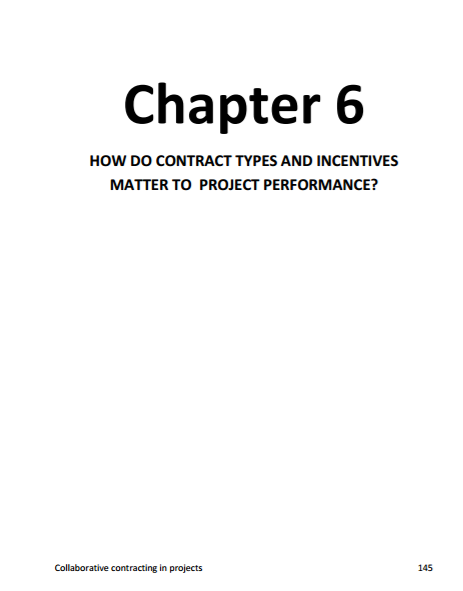5.2.2 How do contract types and incentives matter to project performance?
Course subject(s)
5. Contracting
How collaborative contracts and contractual incentives might influence project performance remains equivocal. We hypothesized that their effects on project performance are mediated by owner–contractor collaboration, measured in terms of relational attitudes (relational norms and senior management commitment) and team working quality (inter-team collaborative processes). Using statistics, we analysed a sample of 113 capital projects. The results suggest that through better relational attitudes and team working quality, projects with a partnering/alliance contract are likely to perform better than those with lump-sum and reimbursable contracts. Likewise, the projects with incentive contracts are likely to perform better than those without incentives through better relational attitudes and team working quality. There were no differences in project performance directly associated with different contract types and contractual incentives. Taken together, a partnering/alliance contract and incentive contracts do not necessarily result directly into better project performance but through relational attitudes and how they play out into actual team working behaviour.
Reading material
The reading material that belongs to this topic is a chapter of the PhD research of Mohammad Suprapto (2016). It can be reached by clicking on the picture below or the link provided.

Read How do contract types and incentives matter to project performance?
Open the paper with a click on the link below.

Project Management of Engineering Projects: Preparing for Success by TU Delft OpenCourseWare is licensed under a Creative Commons Attribution-NonCommercial-ShareAlike 4.0 International License.
Based on a work at https://ocw.tudelft.nl/courses/project-management-engineering-projects-preparing-success.



